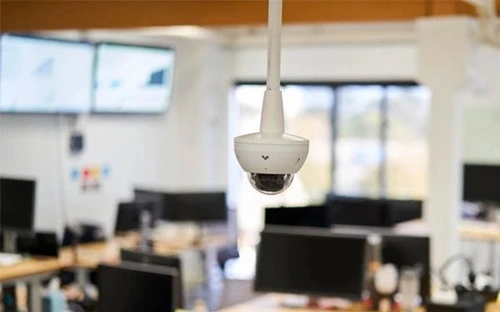No, it is not illegal to have cameras in classrooms in Illinois. However, their use is highly regulated under state and federal laws to ensure privacy rights are respected. Schools must adhere to strict rules regarding consent, notification, and the purpose of the surveillance to avoid violating legal protections.
Legal Framework for Cameras in Illinois Classrooms
Illinois permits the installation of cameras in classrooms, but their use is governed by privacy laws, educational regulations, and local school district policies. The overarching goal is to balance the safety and security benefits of surveillance with the privacy rights of students and teachers.
1. Illinois Eavesdropping Act
- Illinois is one of the few states with a two-party consent law for audio recordings, meaning all parties involved must consent before any audio can be recorded.
- Cameras that also capture audio in classrooms must comply with this law. Unauthorized audio recording can lead to severe legal consequences, including criminal charges.
2. Family Educational Rights and Privacy Act (FERPA)
- Video recordings that include identifiable students may be classified as “educational records” under FERPA. These recordings must be securely stored, and access is limited to authorized individuals.
3. Illinois School Code
- The Illinois School Code does not explicitly prohibit or mandate cameras in classrooms. However, it emphasizes the importance of student privacy and security.
- School districts often establish their own policies regarding classroom surveillance.
4. Notification and Consent Requirements
- Schools must notify parents, students, and staff about the presence and purpose of cameras.
- Explicit consent may be required, particularly if cameras are used for purposes beyond security, such as monitoring behavior or performance.
Purpose and Permissible Uses of Cameras in Illinois Classrooms
- Safety and Security
- Cameras are primarily used to monitor for bullying, violence, or other safety threats.
- Surveillance can also deter misconduct and provide evidence for investigations.
- Special Education Monitoring
- Cameras may be used in special education classrooms to document student progress, ensure compliance with Individualized Education Programs (IEPs), or address behavioral concerns.
- Use in these settings requires careful adherence to privacy laws and notification protocols.
- Documentation of Incidents
- Recordings can serve as evidence in resolving disputes, complaints, or allegations of misconduct involving students or staff.
Challenges and Concerns
1. Privacy Issues
- The use of cameras in classrooms raises concerns about the potential for intrusive surveillance. Teachers and students may feel their actions are being overly scrutinized.
2. Compliance with Consent Laws
- The Illinois Eavesdropping Act makes it challenging to record audio legally, which limits the scope of surveillance in classrooms.
3. Cost and Maintenance
- Installing and maintaining cameras, especially those with audio capabilities, can be expensive for schools with limited budgets.
4. Potential for Misuse
- Recordings must be securely stored and accessed only for legitimate purposes. Unauthorized access or misuse of recordings can lead to legal and ethical issues.
Key Considerations for Illinois Schools
1. Clear Policies
Schools should develop clear policies regarding the installation, use, and management of cameras in classrooms, ensuring they align with state and federal laws.
2. Stakeholder Communication
Parents, teachers, and students should be informed about the presence of cameras, their purpose, and how recordings will be used.
3. Data Security
Schools must implement robust data security measures to protect recorded footage from unauthorized access or breaches.
Related FAQs
Q1. Are cameras allowed in all classrooms in Illinois?
Ans: Yes, cameras are allowed, but their use is subject to strict regulations, particularly regarding consent and privacy.
Q2. Can classroom cameras in Illinois record audio?
Ans: No, unless all parties involved (teachers, students, and parents) provide explicit consent under the Illinois Eavesdropping Act.
Q3. Do schools need to notify parents about cameras in classrooms?
Ans: Yes, schools are required to notify parents, students, and staff about the installation and purpose of cameras.
Q4. Can classroom cameras be used to evaluate teachers?
Ans: Classroom cameras cannot be used to evaluate teacher performance without prior notification and agreement from all stakeholders.
Q5. Who can access classroom camera recordings in Illinois?
Ans: Access is limited to authorized personnel, such as school administrators or law enforcement, and is typically restricted to investigations or specific incidents.
Q6. Are cameras required in special education classrooms in Illinois?
Ans: Cameras are not required but may be used in special education settings with appropriate notification and consent, particularly if they support educational or behavioral goals.
Conclusion
While cameras are legal in Illinois classrooms, their use is carefully regulated to respect the privacy rights of students and teachers. Schools must navigate a complex legal landscape, including compliance with the Illinois Eavesdropping Act, FERPA, and local policies, to ensure the responsible use of surveillance technology.


